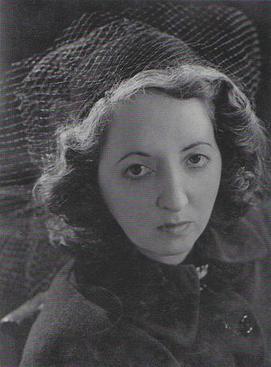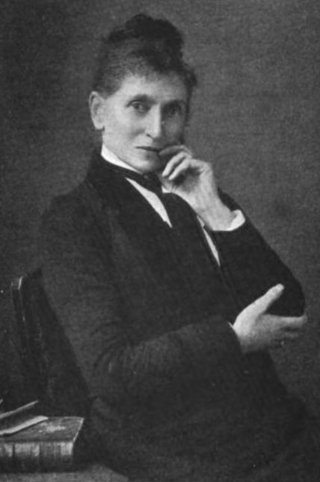Related Research Articles

Boudica or Boudicca was a queen of the ancient British Iceni tribe, who led a failed uprising against the conquering forces of the Roman Empire in AD 60 or 61. She is considered a British national heroine and a symbol of the struggle for justice and independence.

King Arthur is a legendary king of Britain, and a central figure in the medieval literary tradition known as the Matter of Britain.

Magnus Maximus was a Celtiberian who became Roman emperor of the Western Roman Empire from 383 to 388. He usurped the throne from emperor Gratian.

Sharon Kay Penman was an American historical novelist, published in the UK as Sharon Penman. She was best known for the Welsh Princes trilogy and the Plantagenet series. In addition, she wrote four medieval mysteries, the first of which, The Queen's Man, was a finalist in 1996 for the Best First Mystery Edgar Award.

Guinevere, also often written in Modern English as Guenevere or Guenever, was, according to Arthurian legend, an early-medieval queen of Great Britain and the wife of King Arthur. First mentioned in popular literature in the early 12th century, nearly 700 years after the purported times of Arthur, Guinevere has since been portrayed as everything from a fatally flawed, villainous and opportunistic traitor to a noble and virtuous lady. Many records of the legend also feature the variably recounted story of her abduction and rescue as a major part of the tale.

Vortigern, also spelled Vortiger, Vortigan, Voertigern and Vortigen, was a 5th-century warlord in Britain, known perhaps as a king of the Britons or at least connoted as such in the writings of Bede and Gildas. His existence is contested by scholars and information about him is obscure.

Antony Charles Robert Armstrong-Jones, 1st Earl of Snowdon was a British photographer and filmmaker. He is best known internationally for his portraits of world notables, many of them published in Vogue, Vanity Fair, The Sunday Times Magazine, The Sunday Telegraph Magazine, and other major venues; more than 280 of his photographs are in the permanent collections of the National Portrait Gallery.

Olivia Mary Manning was a British novelist, poet, writer, and reviewer. Her fiction and non-fiction, frequently detailing journeys and personal odysseys, were principally set in the United Kingdom, Europe, and the Middle East. She often wrote from her personal experience, though her books also demonstrate strengths in imaginative writing. Her books are widely admired for her artistic eye and vivid descriptions of place.
Constantine was a 6th-century king of Dumnonia in sub-Roman Britain, who was remembered in later British tradition as a legendary King of Britain. The only contemporary information about him comes from Gildas, who castigated him for various sins, including the murder of two "royal youths" inside a church. The historical Constantine is also known from the genealogies of the Dumnonian kings, and possibly inspired the tradition of Saint Constantine, a king-turned-monk venerated in Southwest Britain and elsewhere.

Princess Eilonwy is a fictional character in Lloyd Alexander's The Chronicles of Prydain. She appears in four of the five novels in the series, as well as Disney's 1985 animated film adaptation The Black Cauldron. Eilonwy is a member of the Royal House of Llyr, and the women in her line are formidable enchantresses, including her mother, Angharad, and grandmother Regat. She has inherited this characteristic, most readily visible in her manipulation of a magical item she calls her "bauble", a small golden sphere that glows with magical light when activated by her willpower. Eilonwy's father, Geraint, was a commoner with whom her mother fell in love.

Daniel Rowland served as an Evangelist and early on as an Anglican curate. He was one of the foremost figures in the Welsh Calvinistic Methodist revival, along with the evangelist Howell Harris and the hymnist William Williams. For 55 years Daniel Rowland was one of the leading evangelists in Wales.
The 1904–1905 Welsh revival was the largest Christian revival in Wales during the 20th century. It was one of the most dramatic in terms of its effect on the population, and triggered revivals in several other countries. The movement kept the churches of Wales filled for many years to come, seats being placed in the aisles in Mount Pleasant Baptist Church in Swansea for twenty years or so, for example. Meanwhile, the Awakening swept the rest of Britain, Scandinavia, parts of Europe, North America, the mission fields of India and the Orient, Africa and Latin America. The Welsh revival has been traced as the root of the megachurches in the present era.
De Excidio et Conquestu Britanniae is a work written in Latin by the probably 6th-century AD British cleric St Gildas. It is a sermon in three parts condemning the acts of Gildas' contemporaries, both secular and religious, whom he blames for the dire state of affairs in sub-Roman Britain. It is one of the most important sources for the history of Britain in the 5th and 6th centuries, as it is the only significant source for the period written by a near contemporary of the people and events described.
This article is about the particular significance of the year 1906 to Wales and its people.

Allen Raine was the pseudonym of the Welsh novelist Anne Adalisa Beynon Puddicombe, who was born in Newcastle Emlyn. Her novels had sold more than two million copies by 1912.

Welsh-language literature has been produced continuously since the emergence of Welsh from Brythonic as a distinct language in around the 5th century AD. The earliest Welsh literature was poetry, which was extremely intricate in form from its earliest known examples, a tradition sustained today. Poetry was followed by the first British prose literature in the 11th century. Welsh-language literature has repeatedly played a major part in the self-assertion of Wales and its people. It continues to be held in the highest regard, as evidenced by the size and enthusiasm of the audiences attending the annual National Eisteddfod of Wales, probably the largest amateur arts festival in Europe, which crowns the literary prize winners in a dignified ceremony.
Barbara Caine is an Australian feminist historian.
Robert Hale Limited was a London publisher of fiction and non-fiction books, founded in 1936, and also known as Robert Hale. It was based at Clerkenwell House, Clerkenwell Green. It ceased trading on 1 December 2015 and its imprints were sold to The Crowood Press.

Romanticism was an artistic, literary, and intellectual movement that originated in Europe toward the end of the 18th century. Scholars regard the publishing of William Wordsworth's and Samuel Coleridge's Lyrical Ballads in 1798 as probably the beginning of the movement in England, and the crowning of Queen Victoria in 1837 as its end. Romanticism arrived in other parts of the English-speaking world later; in the United States, it arrived around 1820.
References
- ↑ Lorna Doran (27 April 2013). "Reviving a women's classic: Jane Aaron on Allen Raine". WalesOnline. Retrieved 18 June 2018.
- ↑ Ashlie Sponenberg (1 March 2006). Encyclopedia of British Women’s Writing 1900–1950. Palgrave Macmillan UK. pp. 196–. ISBN 978-0-230-37947-3.
- ↑ M. Joannou (22 October 2012). The History of British Women's Writing, 1920-1945: Volume Eight. Palgrave Macmillan UK. pp. 189–. ISBN 978-1-137-29217-9.
- ↑ Sally Roberts Jones (1979). Allen Raine. University of Wales Press. p. 61.
- ↑ Katie Gramich (1998). Introduction to Queen of the Rushes by Allen Raine. Honno. pp. 1–21.